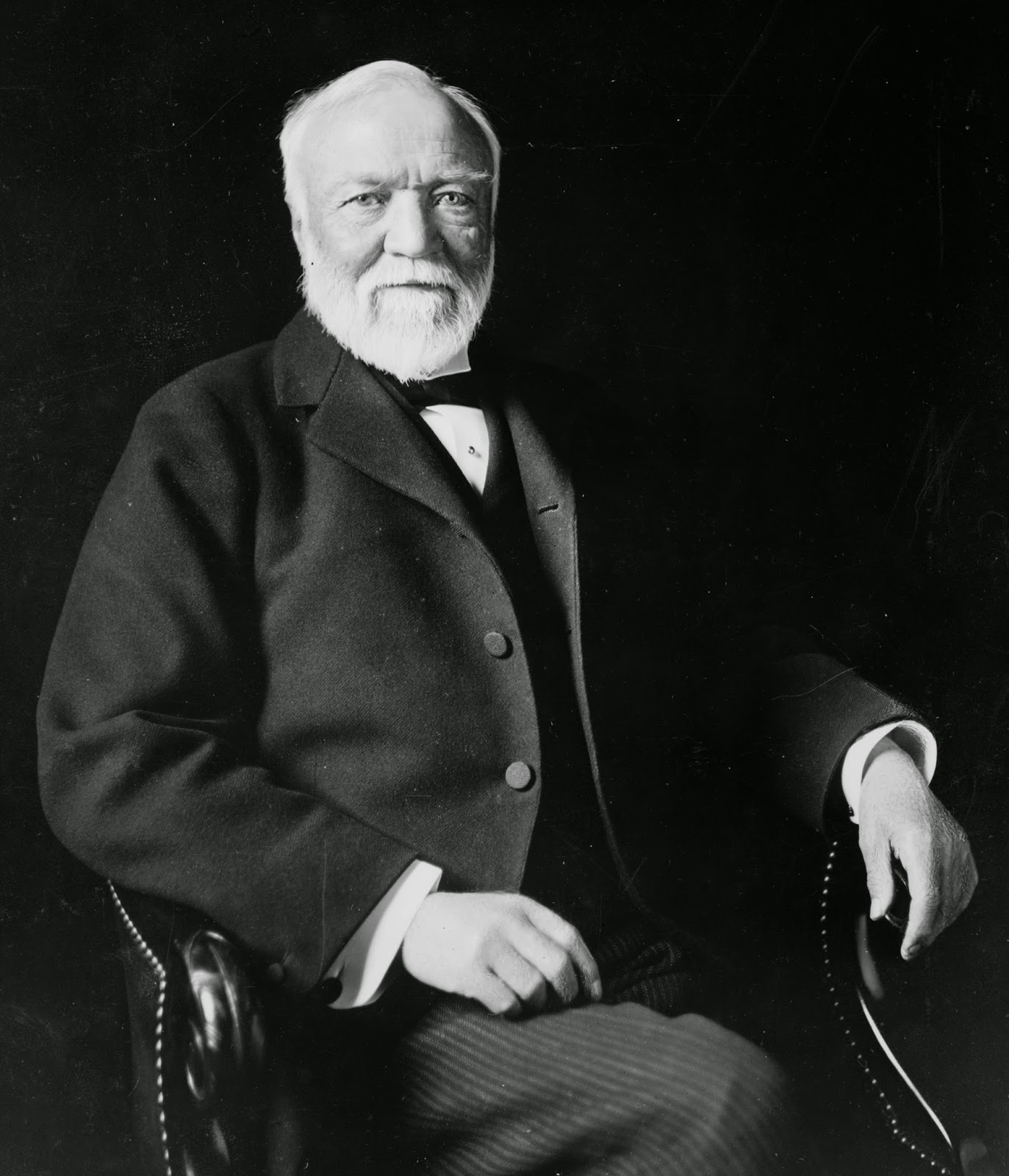Tycoons had a mind for business because they searched for better ways to better products at a cheaper price. By making products at a cheaper price, CEO's of the company were able to make even more money and still pay their employee's the same amount of money.
 |
| Andrew Carnegie. Source. |
Tycoons used many strategies to rise to power and to make a bigger profit. Although some strategies they used were illegal. For example, a strategy used by the tycoons to rise to power was vertical integration, which was an attempt to control as much as possible, or also known as a vertical monopoly. Another example of an illegal strategy was called robber baron. A robber baron is when the owners of a company began establishing monopolies. The owner then raised the prices of their products higher. This not only affected their customers, but it also affected their workers too. By using the strategy of robber baron, they reduced the wages of their workers.
Tycoons also had a major belief in Social Darwinism. Social Darwinism is the belief that being rich meant that God was in your favor, and if you were poor, it was a sign of being lazy and inferior. They thought that you were born with poverty. Many people who owned corporations thought that they were rich because it was in their genetics, or natural selection.
 |
| Carnegie bought trains to transport steel. Source. |
No comments:
Post a Comment